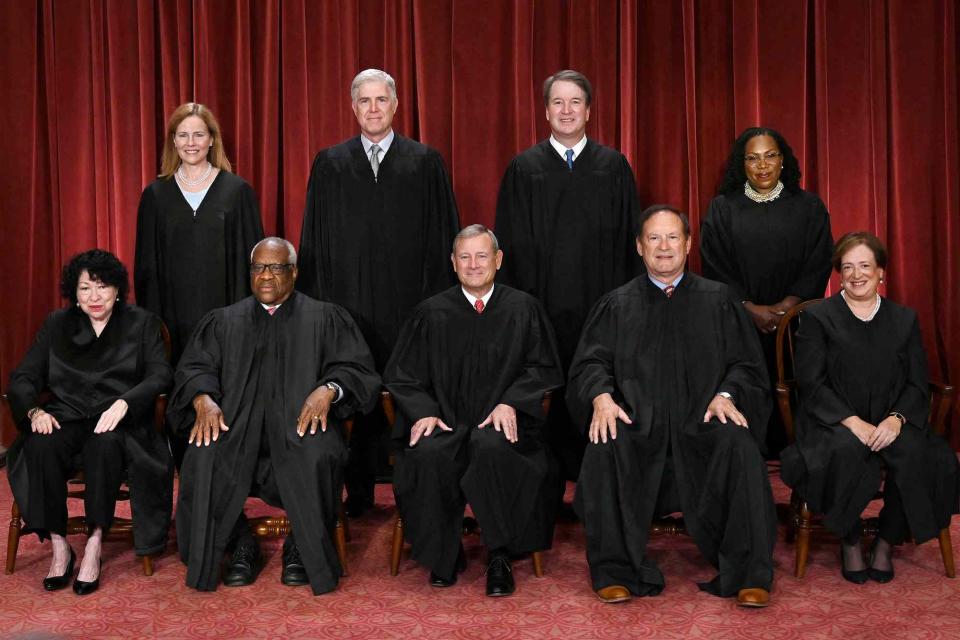U.S. Supreme Court Unanimously Sides with Transgender Refugee, Affirming Her Identity in Historic Ruling
- Oops!Something went wrong.Please try again later.
Justice Ketanji Brown Jackson wrote the court's opinion in Santos-Zacaria v. Garland, which is historic for its humanizing language to describe a transgender woman who fled persecution in Guatemala

The U.S. Supreme Court this week passed a decision that makes history not just for its impact on the law — but for its language about transgender people and non-citizens living in the United States.
Every judge — including the most conservative on the court — agreed with the court's ruling, and traditionally right-leaning justices co-signed the official opinion of the court, which uses proper she/her pronouns to describe a transgender woman who fled Guatemala after being assaulted and persecuted on the basis of her gender identity and sexual orientation.
The opinion also referred to the petitioner as a non-citizen, rather than an "illegal alien" (a dehumanizing term that has been in conservative opinions in the past).
Related:Montana Republicans Ban State's Only Trans Lawmaker Rep. Zooey Zephyr from House Floor
Estrella Santos-Zacaria, the transgender refugee at the center of the case, had appealed a decision to deport her after she twice came to the U.S. seeking safety and a better life.
In a unanimous decision Thursday, the Supreme Court sided with Santos-Zacaria, allowing her another chance to fight the deportation decision and potentially remain in the U.S. if that bid is successful.
The decision is largely technical, but the language used in the opinion is historic, particularly considering the recent wave of anti-LGBTQ measures across the country.
Related:Tennessee Becomes First State to Pass Legislation Restricting Drag Shows
In the court's opinion on the case, Justice Ketanji Brown Jackson — who made history as the first Black female justice to sit on the Supreme Court when she was sworn in last year — wrote using Santos-Zacaria's preferred name and pronouns of she/her. While Brown Jackson is a liberal-leaning justice, the ruling itself was unanimous.
Never miss a story — sign up for PEOPLE's free daily newsletter to stay up-to-date on the best of what PEOPLE has to offer.
The decision came as a number of anti-trans bills have been passed by Republican-controlled legislatures around the country.
According to recent American Civil Liberties Union data, more than 400 anti-LGBTQ bills have been introduced in state legislatures since the beginning of the year.
Among those are laws preventing transgender students from playing sports consistent with their gender identity and others placing restrictions on drag shows. Other measures limit access to public restrooms for transgender people, or block funding to medical centers that offer gender-affirming care.
For more People news, make sure to sign up for our newsletter!
Read the original article on People.

